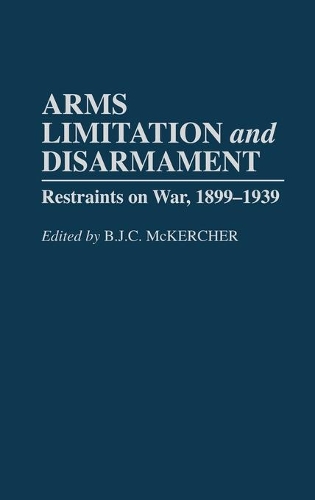
Arms Limitation and Disarmament: Restraints on War, 1899-1939
(Hardback)
Publishing Details
Arms Limitation and Disarmament: Restraints on War, 1899-1939
By (Author) B.J.C. Mckercher
Bloomsbury Publishing PLC
Praeger Publishers Inc
26th October 1992
United States
Classifications
Tertiary Education
Non Fiction
355
Physical Properties
Hardback
272
Width 156mm, Height 235mm
595g
Description
This collection examines various aspects of the efforts made to limit warfare through arms limitation and disarmament agreements in the period from the first Hague conference to the outbreak of World War II in Europe. The issue for each contributor is not necessarily to show whether individual endeavours, separate conferences, and the rest were successful or unsuccessful - though this is an important consideration. Rather, each chapter tends to offer differing points of view on accomplishments and failures because, as is so often the experience in historical study, the record is a mixed situation, certainly not characteristic of arms limitation and disarmament between 1899 and 1939. Written by experts on disarmament issues, these chapters seek to put into historical perspective how and why the efforts to restrain war were undertaken at the Hague conferences, the Washington conference, and among antiwar groups. Each contributor approaches this task using the method he or she deems most appropriate. Some employ an historiographical approach; others undertake to produce analyses based heavily on archival holdings in order to offer new interpretations of the past or revive existing ones. This book should be of interest to students and teachers alike of modern history and political science.
Author Bio
B.J.C. McKERCHER is an Associate Professor at the Royal Military College of Canada. An international and diplomatic historian on Anglo-American relations, he is the author/editor of five books, including (with E.J. Errington) The Vietnam War as History (Praeger, 1990) and (with K.E. Neilson) Go Spy the Land: Military Intelligence in History (Praeger, 1992).
